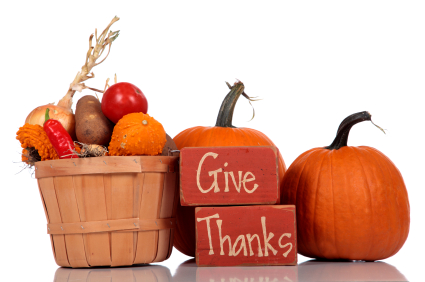Ever since my oldest kid was about two, I find myself saying this all the time: “Did you remember to say thank you?”. If you have young kids you must know the drill. We train our young ones form infancy to express their gratitude when they receive something. But beyond compliance with the social code of saying thanks, are we teaching them to be grateful? Well, it’s not a simple thing to do. We live in a society of material abundance. When I was a kid I had one teddy bear, one box of toys, and a handful of books. Thirty years later, my kids expect a “gift” from every single store they set foot on. They come back form from their birthday parties with two huge bags full of presents, and get a little thing for Holidays, for getting a good grade, for being good… In short they get a little thing all of the time, and once in a while they also get a not-so-little thing as well. Our house gets overloaded with toys and games and clothes and every few months we donate bags upon bags of practically new stuff. Can one remain truly grateful and appreciative when their good fortune seems to be a given fact of life?
 The virtues and benefits of gratitude have been known for generations, but more recently they have also been studied empirically by positive psychologists. People have a natural inclination to focus their attention on the negative things in their lives, even the most trivial and insignificant ones. We could ruminate for hours over the driver who cut us off on the way to work, or the rude hotel receptionist, but we may not even give a single thought to our good health, the support of our family, great weather, or the beauty of nature around us. Every October when I ride with my kids in the car I talk about the majestic colors of the leaves on the trees, and my kids say: “we grew up here dad, we don’t think it’s a big deal”. But that’s the thing. It should be.
The virtues and benefits of gratitude have been known for generations, but more recently they have also been studied empirically by positive psychologists. People have a natural inclination to focus their attention on the negative things in their lives, even the most trivial and insignificant ones. We could ruminate for hours over the driver who cut us off on the way to work, or the rude hotel receptionist, but we may not even give a single thought to our good health, the support of our family, great weather, or the beauty of nature around us. Every October when I ride with my kids in the car I talk about the majestic colors of the leaves on the trees, and my kids say: “we grew up here dad, we don’t think it’s a big deal”. But that’s the thing. It should be.
Drawing your attention to the positive things in your life and expressing gratitude could have a massive effect on your well-being. Activities like conducting a gratitude journal (“counting your blessings”) or writing a gratitude letter to another person (even without sending it) have been shown by researchers like Sonja Lyubomirsky to have a sustainable, lasting effect on one’s happiness. When I met with Phil Zimbardo in San Francisco, he told me a story of a student who approached him years after graduation to thank him for the profound effect he had on her as a teacher. Knowing that Zimbardo is a world-renowned scientist she never thought that he “needs” her appreciation. But of course – everyone does. We are all students of life, and like any student we want to know how we are doing.
Simply put, gratitude is good for you. This Thanksgiving take a moment to think about the things you appreciate in your life. You may not realize how much you have. And, think about people you always wanted to thank and write that long overdue email to thank them. Research evidence says that you will never regret it.
Happy Thanksgiving!


